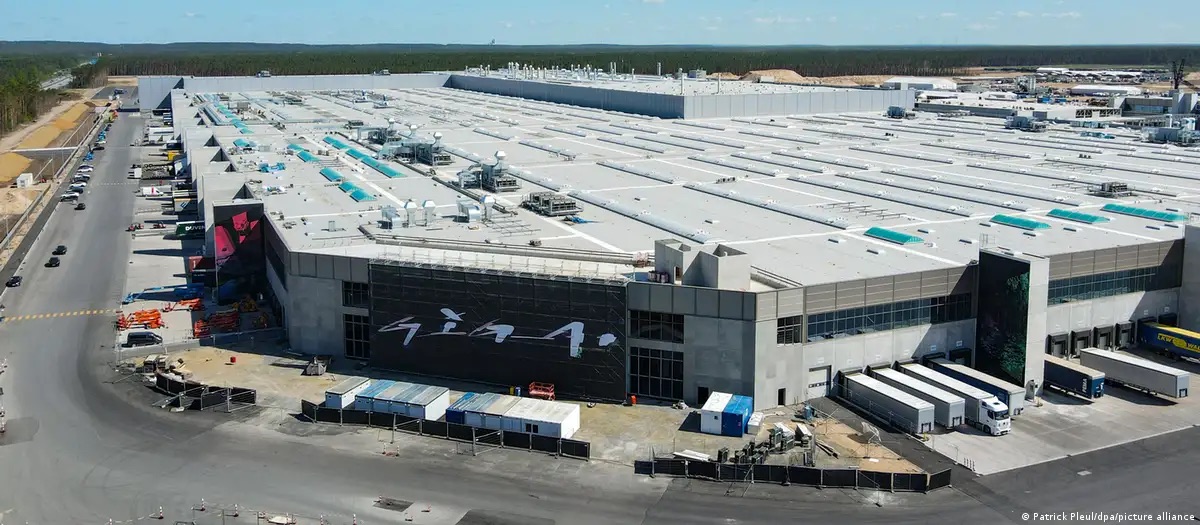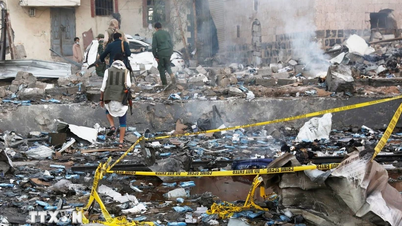“Due to component shortages, we are forced to suspend vehicle production at Gigafactory Berlin-Brandenburg between January 29 and February 11, with the exception of some secondary areas,” Tesla said in a statement.

The Tesla Gigafactory near Berlin was forced to shut down for two weeks due to the crisis in the Red Sea. Photo: Patrick Pleul/dpa
The company blamed the shortage on changes in shipping routes affected by the crisis in the Red Sea, where a US-led coalition is fighting Houthi rebels in Yemen, and the militant group has repeatedly attacked ships passing through the area over the past several weeks.
“Armed conflicts in the Red Sea and related changes in shipping routes between Europe and Asia via the Cape of Good Hope are also having an impact on production at Grünheide,” Tesla said.
The US electric carmaker is the first to announce production halts due to disruptions. Many others, including Geely, China’s second-largest automaker by sales, and Swedish home furnishing company Ikea, have also warned of delivery delays.
Attacks by Houthi rebels have forced the world's leading shipping companies to avoid the Suez Canal, the fastest shipping route from Asia to Europe. It carries about 12% of global shipping traffic.
Shipping giants such as Maersk and Hapag-Lloyd have asked their ships to make longer, more expensive journeys around South Africa’s Cape of Good Hope. The additional route would add about 10 days to the journey from Asia to northern Europe and cost about $1 million more in fuel.
“Significantly longer shipping times are creating gaps in the supply chain,” Tesla said. The company has been producing electric cars in Grünheide near Berlin since March 2022, with about 11,500 people working there.
Oil prices also rose as much as 2.6% after the US and UK launched air and sea strikes on Houthi military targets in Yemen in response to the group's attacks on ships in the Red Sea.
Mai Anh (according to Reuters, DPA, DW)
Source



![[Photo] Prime Minister Pham Minh Chinh receives a bipartisan delegation of US House of Representatives](https://vphoto.vietnam.vn/thumb/1200x675/vietnam/resource/IMAGE/2025/5/28/468e61546b664d3f98dc75f6a3c2c880)
![[Photo] Vietnamese and Hungarian leaders attend the opening of the exhibition by photographer Bozoky Dezso](https://vphoto.vietnam.vn/thumb/1200x675/vietnam/resource/IMAGE/2025/5/28/b478be84f13042aebc74e077c4756e4b)


![[Photo] 12th grade students say goodbye at the closing ceremony, preparing to embark on a new journey](https://vphoto.vietnam.vn/thumb/1200x675/vietnam/resource/IMAGE/2025/5/28/42ac3d300d214e7b8db4a03feeed3f6a)
























































































Comment (0)